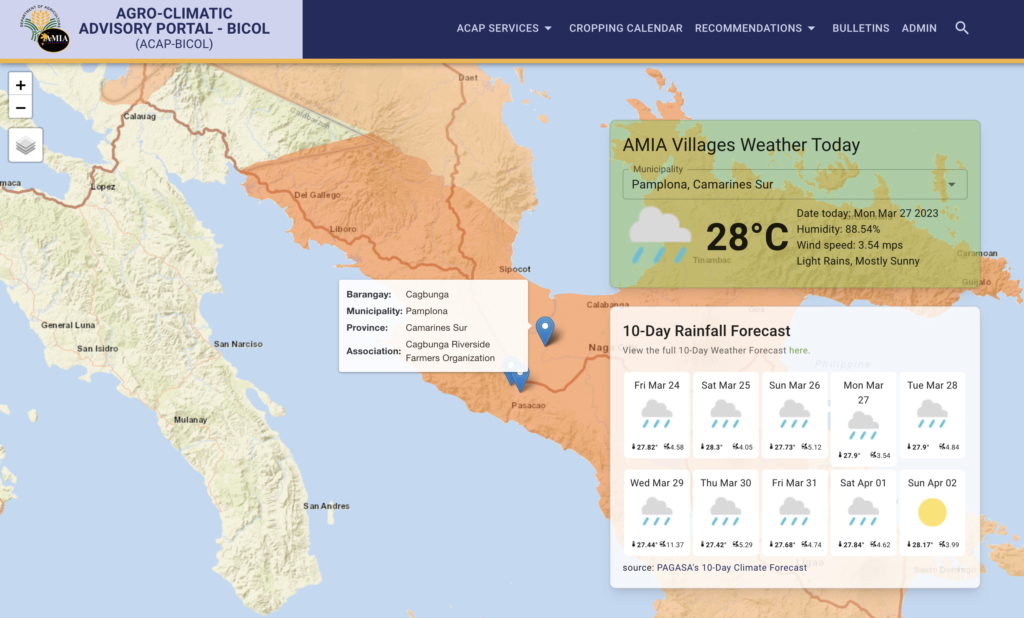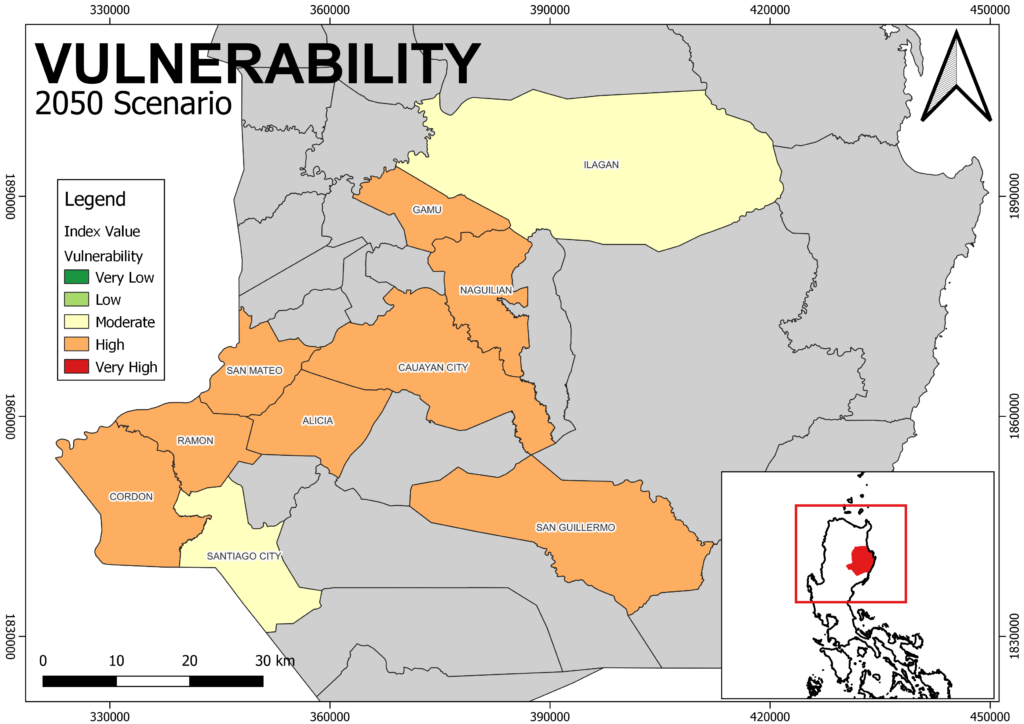UPLBFI develops climate change adaptation and mitigation technologies
April 14, 2023Two novel technologies were recently developed by UPLBFI through projects supported by the Adaptation and Mitigation Initiative in Agriculture (AMIA) program of the Department of Agriculture (DA). These are the Agro-Climatic Advisory Portal (ACAP)–Bicol funded by the DA Regional Field Office (RFO) 5, and the Climate Risk Vulnerability Assessment (CRVA) tool for the fisheries sector funded by DA RFO 2.
The ACAP-Bicol
Following the initiatives of AMIA on Climate Information Services (CIS), UPLBFI and the Alliance of Bioversity International and CIAT (Alliance) collaborated to develop a digital application that will serve as a more convenient yet comprehensive platform for disseminating agro-climatic advisories to the farmers. Termed as the ACAP-Bicol, this digital CIS platform aims to guide extension workers in creating and disseminating relevant and tailored advisories and recommendations in agricultural communities in the Bicol Region.

The ACAP Bicol generates 10-day Farm Weather Outlook and Advisory, 6 months Seasonal Climate Outlook and Advisory, and Special Weather Outlook and Advisory for Tropical Cyclones. It also has an integrated Short Messaging System (SMS) for delivering the crop recommendations and advisories in text format to the farmers.
The Bicol Region is one of the areas in the Philippines that is highly vulnerable to climate risks such as typhoons and flooding. Through this technology, it is envisioned that farmers will be more informed on appropriate climate-resilient measures for specific climate risks in their respective locality.
The ACAP-Bicol is currently available for rice. Other crop recommendations will be included and is targeted to be completed by December 2023.
The CRVA-Fisheries
In 2016, the AMIA program launched the CRVA for crops, a tool that analyzes vulnerability of priority commodities and systems to the impacts of climate change. The CRVA methodology is now established as one of the standard planning tools for developing investments of DA.
Building on the available information from AMIA CRVA for crops and the National Fisheries Research and Development Institute (NFRDI)’s Fisheries Vulnerability Assessment Tool (FishVool), UPLBFI led the development of the CRVA frameworks and methodology for the fisheries sector. This was eventually piloted and validated for the tilapia aquaculture industry in the province of Isabela.

The foundation collaborated with NFRDI, BFAR Region 2, Alliance, and other local fisheries experts in the country to identify specific vulnerability indicators for the aquaculture and capture fisheries sub-sectors.
The results of the CRVA-fisheries will serve as a guide to determine a particular area’s potential for fishery investments. In addition, it will help determine specific interventions and strategies that can be applied to enhance the adaptive capacity of areas vulnerable to climate change.
ACAP-Bicol Team: Technical Team: Leo Kris Palao (Alliance, Lead Consultant), Jonathan Austria (UPLBFI, Data Management Specialist), Jane Girly Balanza (Alliance, Geo-spatial Analyst), Eloisa Grace Mirandilla (UPLBFI, Research Assistant); Project Management Team: Dorcas Trinidad (UPLBFI, Project Management Specialist), Julie Ann Barril (Documentation Specialist), Francis Andrei Salazar (UPLBFI, Project Staff)
CRVA-Fisheries Team: Technical Team: Leo Kris Palao (Alliance, CRVA Consultant), Dr. Mudjekeewis Santos (NFRDI, Fisheries Expert), Jonathan Austria (UPLBFI, Data Management Specialist), Carl Earvin Carada (UPLBFI, GIS Specialist), Arvin Jay Carandang (UPLBFI, Economist); Project Management Team: Dorcas Trinidad (UPLBFI, Project Management Specialist), Julie Ann Barril (Documentation Specialist), Ellison Valencia (UPLBFI, Project Staff)
by: JDCAustria
